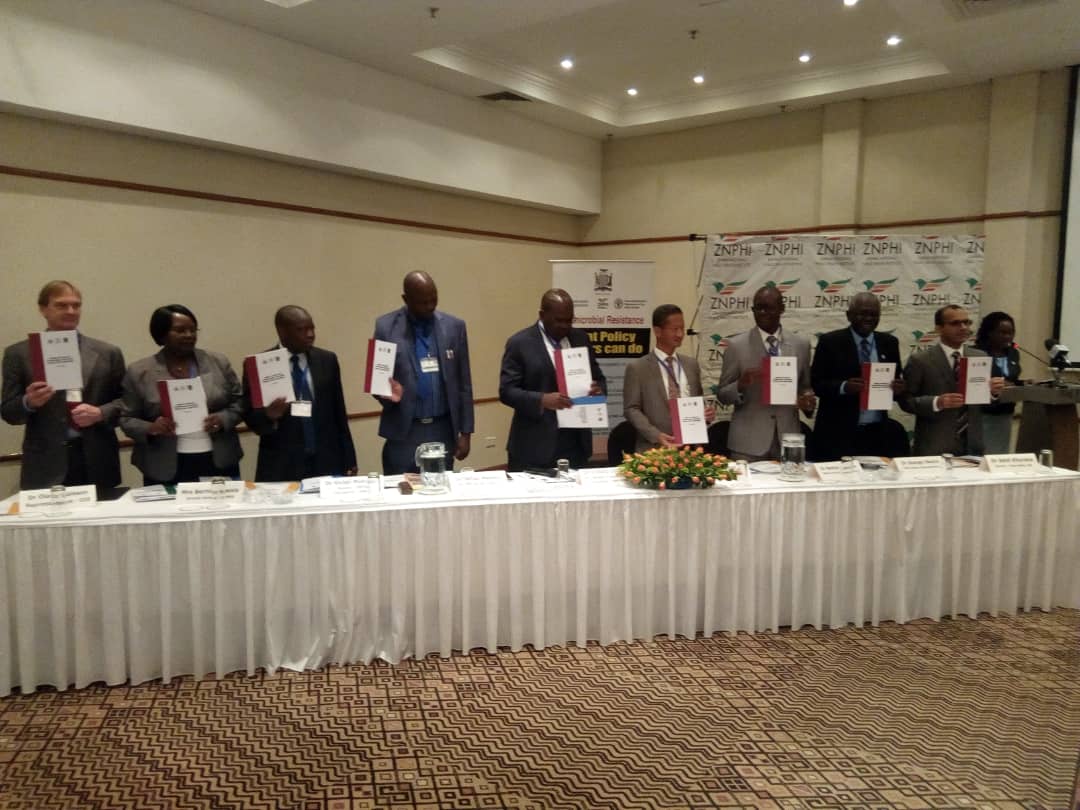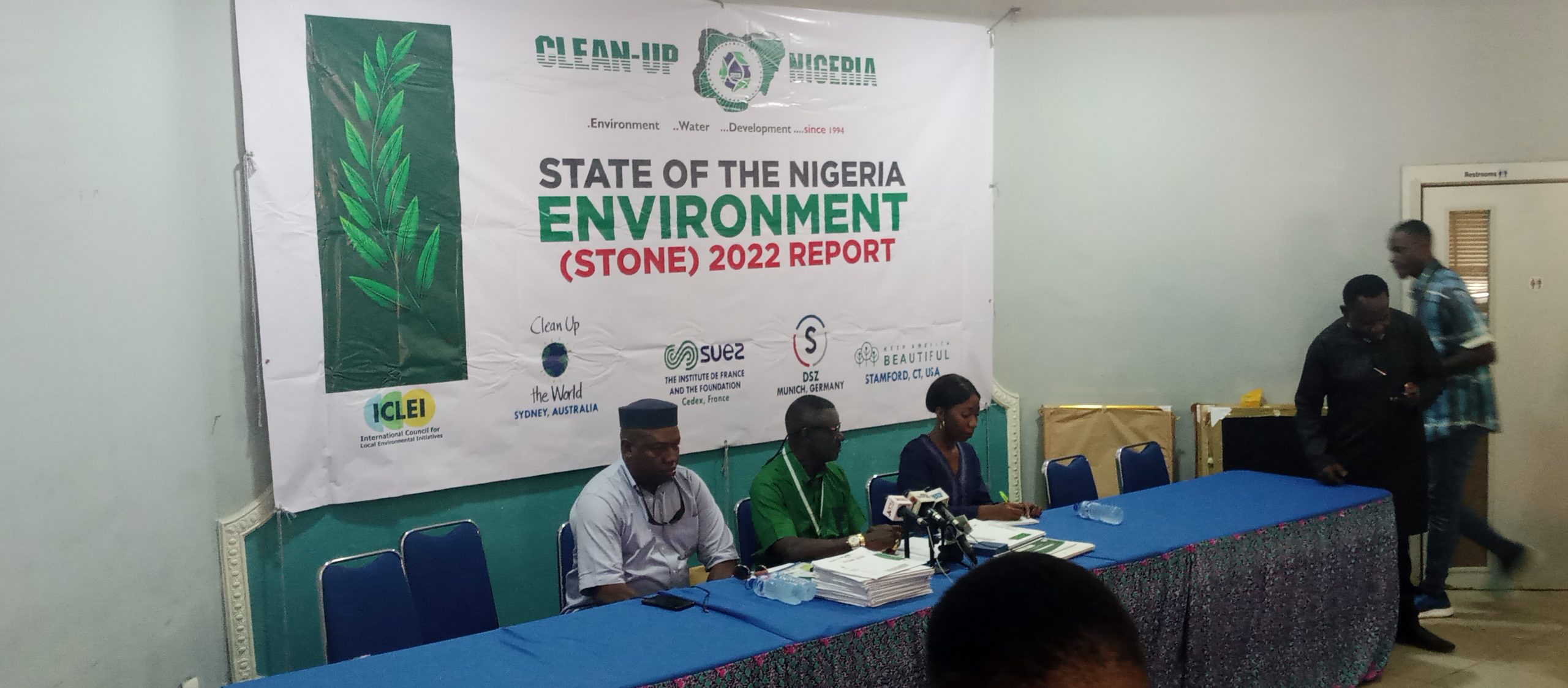Environment
Ignore Antimicrobial Resistance At Your Own Risk – India High Commissioner

The Indian High Commissioner to Zambia Mr. Ngulkham Gangte has warned that any country that ignores the effects of Antimicrobial Resistance (AMR) does so at its own peril.
Gangte gave the warning at the three-day Pan-Africa Workshop on Effective Implementation of National Action Plans on Antimicrobial Resistance holding in Zambia.
The workshop which has in attendance experts from 11 countries is organized by the Zambia National Public Health Institute, Ministry of Health, Zambia in conjunction with the Centre for Science and Environment (CSE) the India-based think tank.
It is also attended by journalists from five African countries that shared their experiences from the ground and got to know what is being done to contain this crisis of AMR.
AMR is the ability of a microorganism (like bacteria, viruses, and some parasites) to stop an antimicrobial (such as antibiotics, antivirals and antimalarial) from working against it.
According to Gangte, the ability of organisms to resist antimicrobial treatment especially antibiotics had a direct impact on human and animal health that carried a heavy economic burden due to the high cost of treatment, and reduced productivity caused by prolonged sickness.
“AMR also impact food safety, nutrition security, livelihoods and consequently, attainment of several Sustainable Development Goals (SDGs).
“Therefore, we all must work together to prevent the menace of AMR in our countries,” Gangte advised.
Also, Zambian Minister of Health Dr. Chitalu Chilufya called on African countries to urgently act on the development and implementation of National Action Plans (NAPs) for Antimicrobial Resistance (AMR).
Chilufya said the objective of the workshop is to discuss the threat of AMR to humans, animals, and the environment; its spread, and impact in Africa and to understand the implementation of the NAPs on AMR.
“AMR is the consequence of the abuse and misuse of antibiotics which poses a greater threat to public health security that robs countries of their aspirations for universal health coverage.
“There is the need for African countries to invest in resilient public health systems which will gear towards reducing the inappropriate use of antibiotics among the public’’.
He, therefore, called on the media to partner with their respective governments in educating the public on the need to stop the abuse and misuse of antibiotics.
On his own, the Director, Food Safety and Toxins Programme, CSE, India, Mr Amit Khurana, while setting the context for the workshop called for innovative ways to manage the issue of access and excess of antibiotics usage.
Khurana said that the misuse and overuse of antibiotics in food-animal production is a key driver of AMR in humans who ultimately consume the animals and animal products.
“The global success to contain AMR will hugely depend on how we handle it, so we must use greater discretion in our approaches and implementations.
“The threat of AMR is real and globally reaching crisis levels, therefore there must be caution in the production of food and management of waste.
“We cannot afford to allow misuse of antibiotics and chemicals first in our system and then after spend a lot to clean it up from their food and environment”
Part of the highlights of the workshop was the launch of five key reports namely;
“Down To Earth’s (DTE) `FROM CURE TO KILLERS, Road Map to Phase out Non-Therapeutic Antibiotic Use and Critically Important Antibiotics in Food-Animals in Zambia, Baseline Information for Integrated Antimicrobial Resistance Surveillance in Zambia, Zambia’s Multi-Sectorial National Action Plan on Antimicrobial Resistance, and Zambia’s Integrated Antimicrobial Resistance Surveillance Framework”.
NAN
Environment
Akwa Ibom emerges Nigeria’s cleanest state for 4th times

Joel Ajayi
Akwa-Ibom state, one of the states in the south-south geopolitical zone, for the 4th consecutive time has emerged the cleanest state in the country followed by Ebonyi and Bauchi states respectively.
The Land of Promise state emerged Cleanest State for the year 2022 in Nigeria, with a cumulative score of 62% and the 2nd and 3rd States (Ebonyi 45% and Bauchi 44%)
The international Non-governmental organization known as the Clean-Up Nigeria CUN revealed that Performance indicators from the December 2021 to November 2022 studies Akwa ibom polled 54% to emerge the winner.
Also the reports showed that over 176.3million Nigerians are living in an unclean environment.
Speaking at the briefing in Abuja while presenting the clean-up Report the founder of Clean-up Nigeria Prince Ene Baba Owoh Jr. MON restated that there is a need to encourage alternative actions on personal hygiene/sanitation in order to ensure a cleaner, healthier and safer Nigeria for all and in the end make the world a better place to live.
According to him, 32 out of 36 States including the rest of FCT outside of Abuja City by our statistical study are rated as unclean States.
“Performance indicators from our studies show that over 176.3million Nigerians in 2022 are living in unclean environments, compared to 172 million in 2021.
“There has been no increase in the number of States with sanitary Landfills beside Lagos, Oyo, Abuja and Bauchi while the remaining 34 States operate open dumping. This development is not only alarming but clearly indicates lack of seriousness by governments at levels to key into the global best practices of waste modernization with related benefits.
“As our graphic chart statistics on monitoring/evaluation of the States have shown only 7 States (Akwa Ibom, Abuja, Cross River, Bauchi, Ebonyi, Lagos and Kaduna) who scored above 10% out of the 30% on the streets/roads cleanliness indicators have clean Roads in the country.
“It is imperative to know that the year 2022 study has the input of 70% satellite monitoring with the applied performance indicators early stated to score across board the ratings of States/Cities on their Cleanliness Performance.
“As our graphic chart statistics on monitoring/evaluation of the States have shown only 7 States (Akwa Ibom, Abuja, Cross River, Bauchi, Ebonyi, Lagos and Kaduna) who scored above 10% out of the 30% on the streets/roads cleanliness indicators have clean roads in the country.
“On personal hygiene and sanitation only four States (Akwa Ibom, Plateau, Cross River and Abuja City) scored above 4% of the 15% and can be said to come close to possession of good personal hygiene/sanitation practices in the country.
In his remark after receiving the Second best state Commissioner, Ebonyi State Ministry of Environment who also doubles as the Commissioner for Grant and Donor Agencies, Hon (Dr) Richard Nnabu appreciated the clean-up Nigeria for the diligent work that will take Nigeria to better heights.
He called on the government at all levels not to relent in creating awareness to the general public to make our environment a better and safer place for all.
-

 Featured5 years ago
Featured5 years agoLampard Names New Chelsea Manager
-

 Featured4 years ago
Featured4 years agoFG To Extends Lockdown In FCT, Lagos Ogun states For 7days
-

 Featured5 years ago
Featured5 years agoNYSC Dismisses Report Of DG’s Plan To Islamize Benue Orientation Camp
-

 Featured4 years ago
Featured4 years agoChildren Custody: Court Adjourns Mike Ezuruonye, Wife’s Case To April 7
-

 Featured3 years ago
Featured3 years agoTransfer Saga: How Mikel Obi Refused to compensate me After I Linked Him Worth $4m Deal In Kuwait SC – Okafor
-
Sports1 year ago
TINUBU LAMBAST DELE MOMODU
-

 News8 months ago
News8 months agoJubilation In Kaduna As Tribunal Upholds Ekene Adam Winner Of Reps Election
-
Featured5 years ago
Board urges FG to establish one-stop rehabilitation centres in 6 geopolitical zones
